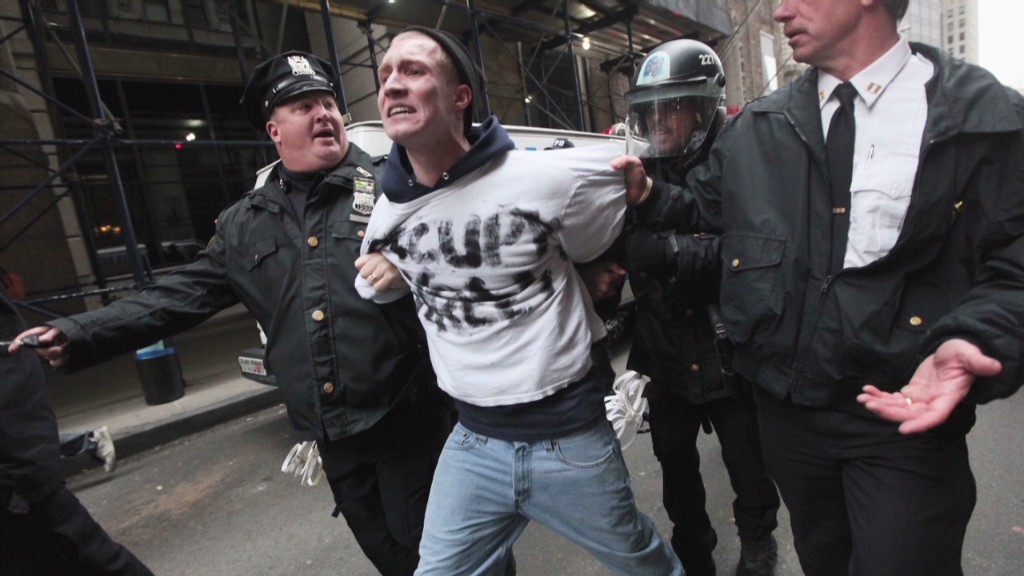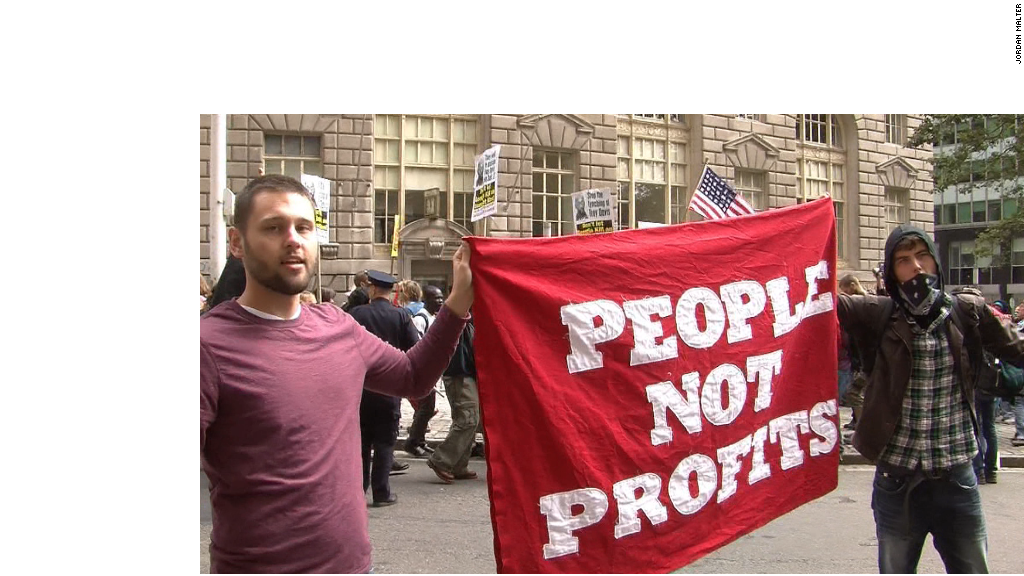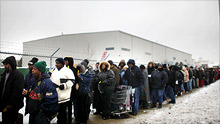
It's been two years since the launch of Occupy Wall Street, the New York-based social movement that quickly spread to encompass headline-grabbing protests around the globe.
Occupy Wall Street stayed in the news for several months, drawing both fascination and criticism for its approach to tackling major systemic issues like corporate greed and inequality. But two years later, the uprising is long over.
To commemorate the second Occupy anniversary, as well as the five-year mark for the bankruptcy of Lehman Brothers, CNNMoney brought together three people with wildly different views on the movement and the problems it sought to solve: a political economist, an Occupy protester and a former Lehman banker.
The Occupier, Mark Bray, said the movement "was about creating a vision of a different world. A world where people actually have their needs met. A humane society."
That was certainly the general goal when Occupy Wall Street kicked off on September 17, 2011. CNNMoney was one of the few news outlets present for Day 1, when a few hundred protesters descended on the ultimate symbol of American capitalism: Manhattan's financial district.
Occupy started in Manhattan's Zuccotti Park and spread quickly. Large labor unions, including the AFL-CIO and SEIU, joined in. Solidarity protests popped up in Los Angeles, Boston, San Francisco, Denver and Chicago, among dozens of other cities. Even President Obama expressed sympathy for the protesters' views. Every week seemed to bring news of mass Occupy arrests, including September 17, 2012, the first anniversary of the movement.
But eventually, Occupy dropped off the radar. Occupiers left the parks they'd taken over, for a variety of reasons: evictions like those in New York, violence as in Occupy Portland, or the sheer effect of time.
Related: Watch the income inequality panel
Occupy Wall Street was never about a list of demands, but after the movement died it left critics to wonder what the action really achieved.
The other two members of CNNMoney's panel, former Labor Secretary Robert Reich and ex-Lehman vice president Larry McDonald, echoed common critiques of Occupy's approach: Its lack of focus on a singular mission, its disorganization, its reliance on getting 95% of Occupiers to agree on what the group should do.
"For a time, they were really swinging a big stick ... It was kind of like they were there, and now they're gone," McDonald said.
Bray argued that Occupy birthed a new generation of young activists, and it also engendered national conversation about issues like class and what a truly equal world would look like. But he didn't deny the movement has fizzled out.

Still, while the Occupy name may be out of the headlines, other groups have taken on its spirit: a group called Robin Hood Tax meets Tuesday to mark the Occupy anniversary and discuss plans to tackle perceived unfairness stemming from Wall Street.
Robin Hood Tax's meeting place? Zuccotti Park, where Occupy began.



